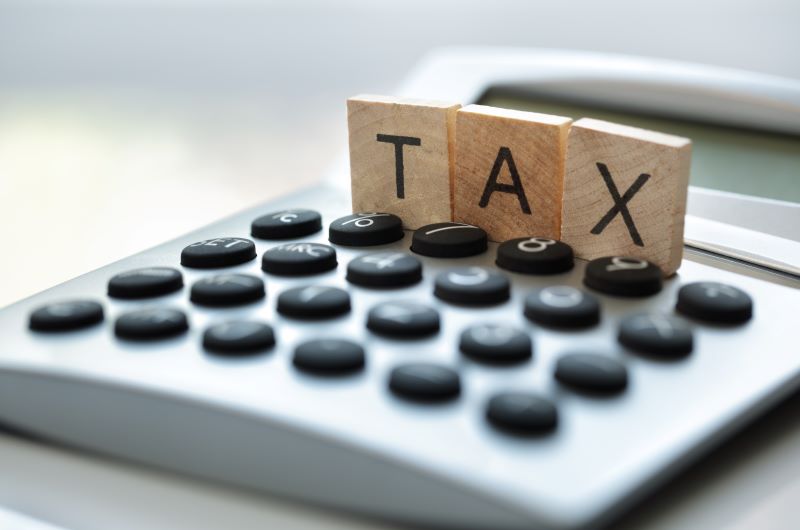Anthony Tripolino FIPA: Lessons from teenage side hustles
Having proven his entrepreneurial flair as a teenager, Anthony Tripolino FIPA was taught lessons around work ethic by...
READ MORE
With the Australian Labor Party (ALP) preparing to form the next federal government, its taxation policies will be an important factor in funding the spending commitments that were part of its election platform.

The ALP’s pre-election tax policy commitments fall into three broad categories:
Extension and boosting of ATO programs
This initiative is expected to increase net revenue over the period of the forward estimates from 2022 to 2026 by $3,082.7 million:
| 2022-23 | 2023-24 | 2024-25 | 2025-26 |
| $90m | $584.3m | $1,017.9m | $1,390.5m |
The ALP has not been specific about which ATO programs will benefit most from additional resources in order to raise this expected revenue. However, it is reasonable to expect that there will be more resources available to the ATO for its Justified Trust program across larger taxpayers and for it to extend the reach of its programs further into the private group and high net worth individual sectors.
This forecast additional revenue is on top of the $1.45 billion that was included in the 2022-23 Budget as the net revenue from the former government’s proposed extra funding for the ATO.
Taxation of large and multinational business
This range of measures is expected to increase government revenue by $1,896 million over the forward estimates. The ALP has not yet indicated how the individual measures respectively contribute to this forecast total.
| 2022-23 | 2023-24 | 2024-25 | 2025-26 |
| – | $461m | $769m | $666m |
The new Government will support the adoption to the OECD / G20 -sponsored Inclusive Framework’s (IF) BEPS 2.0 proposals for reform of the international business tax system, including a global minimum tax of 15 percent. The ALP press release did not indicate a fixed start date, but noted it would join other OECD members in implementing the measures which are not expected to start before 2023.
We expect that Australia would raise net additional revenue from implementing both Pillar 1 and Pillar 2.
Thin capitalisation change
The Government proposes to modify the “safe harbour” for debt deductions to 30 percent of EBITDA and to retain the alternative “arm’s length debt amount” and “worldwide gearing ratio” tests in case a taxpayer wishes to justify a higher interest deduction than would be allowed under the safe harbour.
The new rule would apply from 1 July 2023.
The proposal aligns with the OECD recommendations coming from its 2015 BEPS Action 4 Report Limitation on Interest Deductions. 30 percent of tax-EBITDA is at the more generous end of the range of ratios that the OECD recommended in this report, but aligns with the majority of the other countries that have taken up the OECD recommendation
Taxpayers will need to modify their thin capitalisation safe harbour calculations from analysing the current debt:equity ratio to reviewing the adjusted taxable income in future.
Denial of deductions for certain royalty payments
The Government will introduce legislation to deny a deduction for royalty payments to recipients in low-tax jurisdictions from 1 July 2023. The measure will only apply to payers that qualify as a “significant global entity”, which is broadly those with global accounting revenue of A$1 billion or more.
The ALP has said that the purpose of the new provision is to stop MNEs from “treaty shopping” by holding their intellectual property in a jurisdiction that has a double taxation agreement with Australia. This may currently enable the payment to be subject to a reduced level of Australian withholding tax, without any further tax being charged in the recipient jurisdiction.
The payer would continue to be entitled to a deduction where it can satisfy the Commissioner of Taxation that the arrangement is not for the dominant purpose of obtaining a tax benefit.
The ALP has announced that consultation with the business community will occur prior to the introduction of the legislation, and during this process we expect that further information will be provided on how the new measure would co-exist with the Diverted Profits Tax and with the proposed Pillar 2 measures.
Tax transparency
The Government will require certain information from country-by-country reports to be made public. There will be further consultation on this measure, but it appears that taxes paid and employee numbers for each jurisdiction will be required.
The Government will introduce mandatory reporting of dealings with tax haven jurisdictions and also proposes to establish a public beneficial ownership register of Australian companies.
Electric vehicles
The Government will exempt electric cars from import tariffs and fringe benefits tax where their value is less than the luxury car tax threshold for fuel-efficient vehicles.
The Government’s objective is for the exemption to apply from 1 July 2022 and for the policy to be reviewed after three years based on the level of adoption of electric vehicles at that time.
Summary
With many of the announced measures due to start on 1 July 2023, it will be challenging for the new Government to get all of these changes through the consultation and legislative process in time.
However, for at least some of the measures, the previous adoption by other countries should give a starting framework.
This article first appeared on Tax Now.